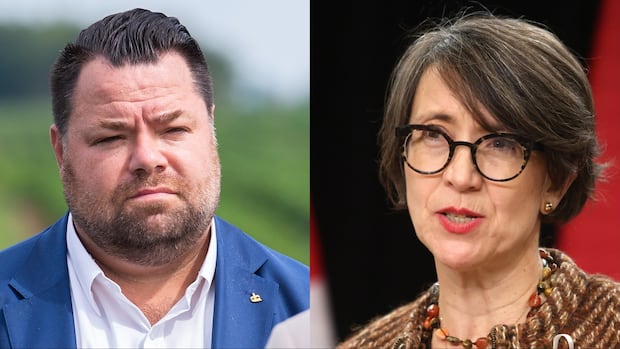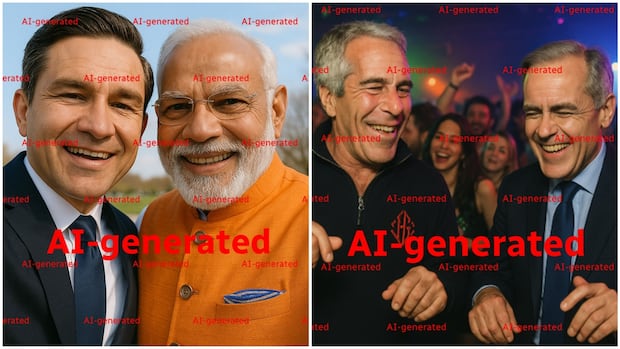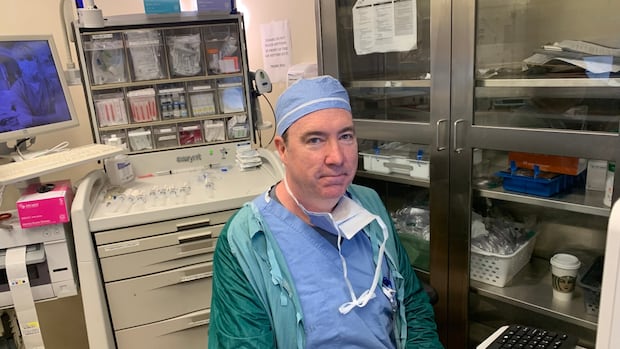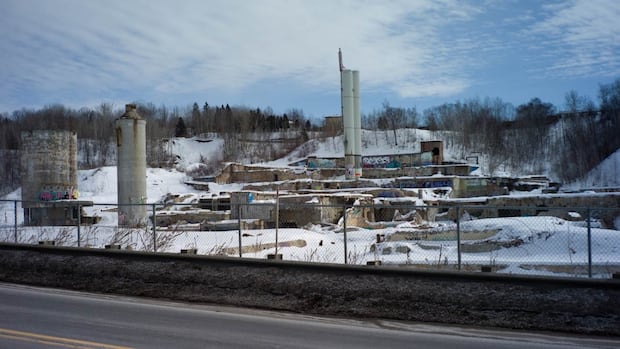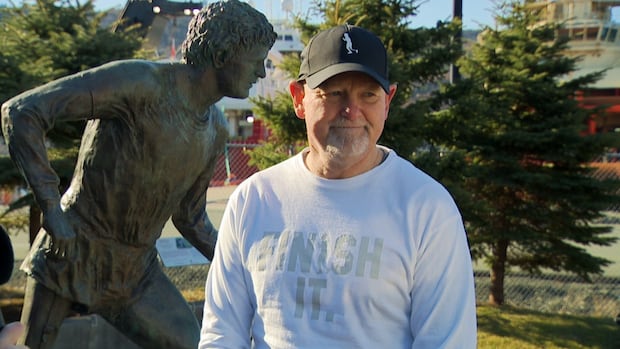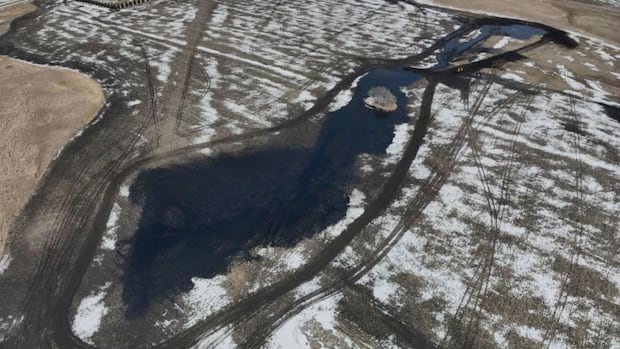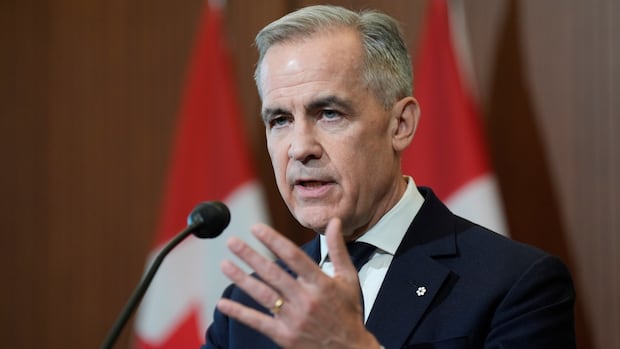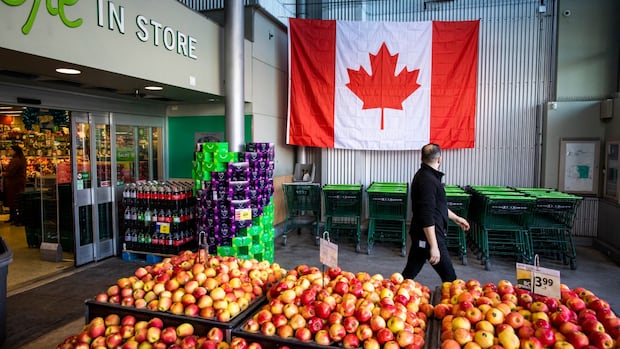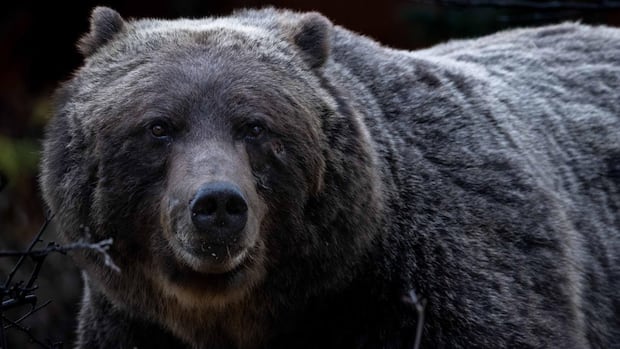Every Friday afternoon, Mustapha Ramadan stands outside the Islamic Society of North America (ISNA) mosque in Mississauga, Ont., organizing a long line of cars arriving for prayers.
He's one of many Muslims who say they plan on voting in the upcoming federal election, but haven't decided who will earn their ballot. One reason for this indecision is what many Muslims say is the lack of attention party leaders have been paying to the community and the issues that matter to them during this campaign.
As the chair of ISNA, Ramadan has welcomed many politicians to the mosque, which is one of the largest in Canada — Conservative Leader Pierre Poilievre attended their summer Eid festival in 2023, and NDP Leader Jagmeet Singh was at the mosque in 2022, serving food for iftar, the fast-breaking evening meal during the holy month of Ramadan.
ISNA is a popular stop during election campaigns, but this time around, Ramadan says, things are different.
"We haven't seen anything yet," he said, noting none of the federal party leaders have visited the mosque during the campaign so far.
This lack of attention concerns Ramadan and other Muslim leaders who say they want politicians to engage with the community on issues that matter to them, like the ongoing war in Gaza, Islamaphobic attacks or Quebec's secularism law. One expert suggests that because these topics are often seen as controversial, politicians steer clear for fear it could cost them at the ballot box, but those working to mobilize Muslim voters warn that avoiding these issues could have the same effect.
Pushing Muslim issues to the forefrontMore than 100 Muslim organizations across the country have signed a joint statement urging Muslims in Canada to vote in the upcoming election, make their voices heard and push politicians to address what they see as crucial issues.
Reem Sheet, with the National Council of Canadian Muslims (NCCM), says Muslims here have been watching the horror of war unfold in Gaza, as well as witnessing Islamophobia closer to home, like the 2021 truck attack that killed four members of the Afzaal family in London, Ont., and an unprovoked attack on a hijab-wearing woman at an Ajax, Ont., library late last month.
"I think our community just wants to see that Canada is taking the right steps forward to make sure that these horrors don't continue for our community," said Sheet.
CBC News reached out to the three main parties for comment. The Conservatives did not respond in time for publication.
The NDP said it has taken the strongest stance of any major party on defending human rights and international law by calling for a permanent ceasefire. Singh himself sponsored a motion in March 2024 calling for the federal government to recognize Palestinian statehood that passed after the Liberals introduced amendments.
In an emailed statement, a spokesperson for Liberal Leader Mark Carney said he has regularly met with Muslim communities, called for the completion of the ceasefire agreement, and "the return of all hostages, and a safe resumption of humanitarian aid at scale so that Palestinians in Gaza can rebuild their lives."
In a statement, NCCM acknowledged that Carney had met with their organization and many others to discuss issues that matter to Canadian Muslims, but they urged him to take more concrete actions to address their concerns.
Sheet says those concerns include the fact that Muslims are still waiting for federal leaders to present a national strategy on combating Islamophobia, and to make clear their stances on the war in Gaza.
WATCH | Muslim voters discuss their concerns during the federal election: More than 100 Muslim and Arab organizations signed a letter calling on political parties to take a principled stance on the conflict in the Middle East, among other things.Aisha Sherazi, a community volunteer in Ottawa, says while voters want to hear from the party leaders on issues that matter to them as Muslims, there are other things that affect their daily lives, too.
"We're regular citizens," she said. "So of course, you know, affordable housing is important … what happens with the economy is going to impact everyone."
Balancing actMany politicians view talking about the war in the Middle East as a divisive issue, especially during an election, according to Ruby Dagher, an assistant professor in international development at the University of Ottawa.
"I think if you're looking for votes, it is absolutely dangerous territory," said Dagher. "It's the need to win certain votes, but at the same time the fear of losing other votes that makes it … difficult to find that balance."
That balancing act was on full display at a Calgary rally for Carney on Tuesday, when a protester shouted, "Mr. Carney, there's a genocide happening in Palestine!" In the moment, Carney responded, "I'm aware, which is why we have an arms embargo."
Later, asked to clarify if he saw genocide in Gaza, he said it was noisy, so he "didn't hear that word," and said he meant he was aware of the situation in Gaza. On Thursday, Israeli Prime Minister Benjamin Netanyahu called Carney's words "irresponsible" in a post on X.
WATCH | Carney explains his comments about Gaza: Liberal Leader Mark Carney, speaking from Calgary on Day 18 of the election campaign, is asked about his interaction with a protester at a recent rally who yelled, ‘there’s a genocide in Gaza’ and Carney responded, ‘I’m aware.’ Carney said it was noisy at the rally and that he 'didn't hear that word,' referring to genocide.Sherazi, who's already decided how she'll vote, says though the leaders naturally command a lot of attention, people should also focus on their MPs.
"A lot of the coverage is on the leaders themselves, and you're not really voting for them," she said. "When you vote, you've got to vote for your local individual whose responsibility is to advocate for you, and I think that people forget that."
Though the party leaders may not have visited ISNA, other politicians have turned out. Charles Sousa, the incumbent Liberal candidate for Mississauga-Lakeshore where ISNA is located, was at the mosque during Eid prayers this year.
Dalia Hashim, the mosque's public affairs manager, says he received a round of applause when he vowed to support the Muslim community.
The power of the Muslim voteThe power of the Muslim vote is not something that should be taken lightly, according to Umair Ashraf, the executive director of Canadian Muslim Votes, a nonpartisan organization that focuses on political education and civic engagement.
During the 2024 U.S. election campaign, many Arab American and Muslim voters in Michigan who helped Joe Biden win in 2020 told CBC News they wouldn't support Kamala Harris's election bid due to the administration's response to the crisis in the Middle East.
In the end, Michigan flipped for the Republicans and ultimately helped send Trump back to the White house.
Ashraf says that power exists in Canada as well.
"There are almost 1.8 million Muslims across Canada, and at times there can be anywhere between 60 to 80 ridings where there can be a Muslim swing," he said, referring to ridings where Muslim voters make up a significant portion of the population.
 Ruby Dagher is a professor of international development and global studies at the University of Ottawa. (Anne-Charlotte Carignan/Radio-Canada)
Ruby Dagher is a professor of international development and global studies at the University of Ottawa. (Anne-Charlotte Carignan/Radio-Canada)Dagher says that while that may be true, a Muslim voting block here may not be as powerful as those in the U.S., partly because issues like the war in Gaza have been overshadowed by Donald Trump's tariffs and threats to annex Canada, but also because Muslims don't all vote the same way.
She notes that the community's support appears to be spread out enough that Muslim voters are unlikely to tip the scales in any one direction.
"I'm not saying it's nothing, but I also don't see it as a major factor that's going to influence, given that each group has been able to attract some Arab electorate specifically."
When it comes to courting the Muslim vote, Sherazi suggests that politicians should take a strong stance about what's happening in the Middle East and be deliberate about using language that unifies rather than divides.
 Aisha Sherazi, a community volunteer in Ottawa, says politicians should take a strong stance about what's happening in the Middle East and be deliberate about using language that unifies rather than divides. (CBC)
Aisha Sherazi, a community volunteer in Ottawa, says politicians should take a strong stance about what's happening in the Middle East and be deliberate about using language that unifies rather than divides. (CBC)"It's incumbent upon our leaders to really speak up and kind of reassure people that as Canadians, we feel passionately about international law, that those things matter, that humanity matters," she said.
"I think that's going to be really, really important to a lot of voters, not just the Muslim community."


